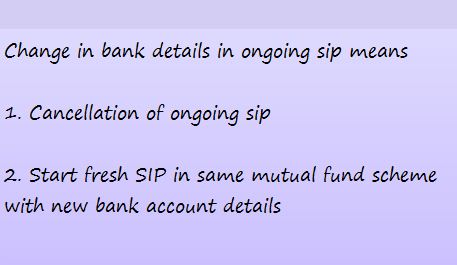Query of Blog Reader
Impact on Long Term Capital Gains Tax Exemption and Exit Load, on redemption of units, after transfer of the schemes of Fidelity Mutual Fund to L&T Mutual Fund.
I am taking the liberty to put forth these queries
to you since I am in the mailing list of and am an avid reader of
"Investing can be interesting".
I
have been investing regularly in Fidelity Equity Fund (Growth). I
stopped my SIP as soon as I learnt that L&T Mutual Fund was
acquiring the schemes of Fidelity. Over 12 months have passed since I
made almost all of my SIP investments (barring the last 4 monthly
installments) in Fidelity Equity Fund (Growth).Hence,
the capital gains on all the units purchased (except the last 4 SIP
installments) are long term and hence the long term capital gains from
the redemption of these units should be exempt from tax and,
furthermore, no exit load should be applicable on these units as they
have been held for more than 12 months (1 year). After 15/11/2012, Fidelity mutual fund schemes will be transferred to those of L&T.
Please
clarify that even after the units are transferred from Fidelity Equity
Fund to L&T Equity Fund, the units purchased by me (except the last 4
SIP installments, mentioned above) will still be considered long term,
and hence, even if these units are redeemed immediately after their
transfer from Fidelity Equity Fund to L&T Equity Fund, that is,
redeemed in the 2ndhalf of November, 2012 itself:
1.the capital gains on redemption of these units will still be exempt from tax
2.the redemption of these units will still not attract any exit load
3.only STT @0.25% on total redemption amount has to be borne by me
I will be thankful to you if you could offer your clarifications at the earliest.
................................................................................................................
Reply:
Yes, even after the units are transferred from Fidelity Equity
Fund to L&T Equity Fund, the units purchased by you which completed one year or more, if sold after merger date, will be considered as long term capital gains.
"As even after merger, the actual purchase date is considered for calculation of capital gain of mutual fund units."
When two schemes are merged, the scheme that gets merged is treated as the transferred scheme.
In mutual funds, if scheme A is merged with scheme B, then it is treated as redemption by unit-holders of scheme A and issue of units of scheme B to them is considered as purchase of new units.
The investors of scheme A are liable for capital gains tax as it is considered as withdrawal.
There is no long-term capital gains tax on investments in equity schemes if investments are held for more than a year (as in your above case, units are held for more than year, and above mentioned scheme is equity fund, you
don't need to pay tax as the long-term capital gains in equity funds is
nil.
In the case of debt schemes, investors have to pay both short-term as well as long-term capital gains tax on redemption, the long-term capital gains
are 10% without indexation or 20% with indexation.
A merger of two schemes mean a capital gains tax liability for you.
When a scheme gets merged into another, the first scheme ceases to exist. In such a case, units of the first scheme are redeemed, but not returned to unit holders. They are then reinvested in the scheme in which the first scheme is to be merged. So even if you choose to stay invested, it is still deemed as a withdrawal from one scheme to another. In this case, the investor needs to mention his income in his tax returns and pay the capital gains tax wherever applicable.
Your questions:
1.the capital gains on redemption of these units will still be exempt from tax
Yes, if units are held for more than year, and above mentioned scheme is equity fund, you
don't need to pay tax as the long-term capital gains in equity funds is
nil.
2.the redemption of these units will still not attract any exit load
Yes, normally the details are mentioned in merger notification and mostly exit load is paid by fund house.
3.only STT @0.25% on total redemption amount has to be borne by me
If in merger notification it is clearly mentioned that STT will be paid by fund house then, you don't have to pay STT, if not mentioned in merger notification then, it will be paid by the investor. In fidelity merger notification it is mentioned the securities transaction tax, if any, which will arise on account of redemption of units during the exit option provided to unit holders, will be borne by FFM.
But you have to exercise this option before November 15, 2012, if you want to avoid exit load and STT as redemption after 15 November 2012, will be subject to load, applicable if any, as may be prevailing at that time in respective scheme. (this is what mentioned in first extract)
The
dissenting unit holders of L&T and Fidelity are given an option to
redeem/switch out from the schemes within October 15, 2012 to November
15, 2012 without paying any exit load.
Now Refer this merger notification
Refer this extract from above notification
Earlier posting on merger









































.....png)







.....png)



